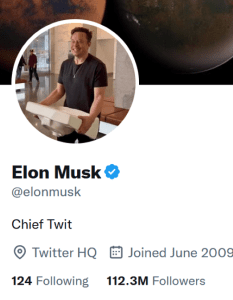In countries like ours where his only concern will be profit, expect the platform to have a way more fracturing effect. With no shareholders to answer to, Musk will be under no compulsion to operate in any ethical manner in India.

Elon Musk at the Twitter headquarters on 27 October (Twitter/WalterIsaacson)
After months of to and fro, Elon Musk has finally gone ahead with his purchase of the social media giant, Twitter.
Some might even argue that he was forced to go through with the acquisition after having seemingly announced his intention on a whim through a tweet. Regardless, the man seen by many in the tech industry as a champion of innovation is now heading possibly the most influential social media platform in these politically polarised times.
So, what does this mean for us, especially in India? Nothing good, unfortunately.
After having loudly proclaimed how he planned to make Twitter a true bastion of free speech by removing most moderation checks (an argument that in itself is ludicrous), one of his first acts after walking into the Twitter headquarters was to pacify advertisers that he would not turn Twitter into an unmoderated hellscape. Good!
Entering Twitter HQ – let that sink in! pic.twitter.com/D68z4K2wq7
— Elon Musk (@elonmusk) October 26, 2022
While Twitter itself has had a chequered past when it comes to moderation, especially in non-Western countries, the answer to this problem was never a completely unchecked platform.
Instead, what Twitter and many other social media platforms need are more nuanced, independent and politically-distant moderation processes. This is something that a smart technocrat like Elon Musk would know very well, but as a shrewd statesman, he also knows what plays well to the crowds.
Not unlike the many extremist and polarising voices on his new plaything, Musk loves to say things that make headlines. In that regard, he has more in common with the many populist demagogues currently rising to power worldwide than he has with the Silicon Valley crowd he is considered a champion of.
The most recent example of this was his attempt to get the US government to pay for his Starlink satellite services which he had initially offered for free to Ukraine. It was very transparent that his initial act of charity was nothing but a ploy to grab headlines with the hope that he could then strong-arm the government to pay for it once it became an essential part of the war effort.
Public outcry made him roll back his call for payments, but we shouldn’t be fooled by his altruistic posturing. Musk holds ambitions of being more involved in politics than many other entrepreneurs (many of whom would like to keep as much distance as possible) and with Twitter, he now has the keys to be a central figure in global discussions.
 India and the other ventures of Elon Musk
India and the other ventures of Elon MuskMusk has his hands in many pots and he is determined to make the best of all of them. He uses his larger-than-life persona to drive these businesses and it shouldn’t come as a surprise to anyone if he leverages Twitter to support the growth of his other ventures.
Earlier, Musk’s tweets single-handedly drove up the prices of Bitcoin. His Tesla later sold a big chunk of its Bitcoin holdings and made a handsome profit.
What should be more worrying for us in India is how lucrative a market we are for Tesla and SpaceX — both businesses Musk directly oversees. The Indian government has already made noises in the past about limiting Tesla’s entry into the market and Twitter could easily become a pawn in that game.
For all of Twitter’s flaws, it still operated as an independent company under its previous ownership. Parag Agrawal & co. were primarily invested only in the success and independence of the platform, even if they were grossly negligent in putting in place healthy moderation and content-filtering processes.
However, it now forms part of a larger nexus of Elon Musk businesses, and with new IT rules on the horizon and a government that isn’t shy of using its clout, it’s highly likely Twitter will be leveraged in India to aid Musk’s other ventures.
Finally, and probably most importantly, Elon Musk wants to make Twitter highly profitable.
In many ways, he’s entitled to it after spending $44 billion acquiring the platform, but it’s this very profit-first approach that has led to Twitter and other social media giants becoming such politically-volatile spaces.
Musk’s appeasement of advertisers signals that very little will change for the better. If anything, it’s more likely that he will try to drive up engagement monetisation — and nothing engages these days more than polarisation.
In the US, where he is more concerned with his image and public repercussions, he might put in place some token improvements to the platform to de-escalate polarisation.
But in countries like India where the only concern of Musk will be profit, expect the platform to have a way more fracturing effect. Even moderation will yield to local market and political demands, and with no shareholders to answer to, Musk will be under no compulsion to operate in any ethical manner in India.
(Sidharth Sreekumar (he/him) is an advocate of ethical technological advancement, and is interested in exploring the confluence of technology and societal impact. He is currently a Senior Product Manager at the Economist Intelligence Unit. These are the personal views of the author)

Apr 19, 2024

Apr 19, 2024

Apr 19, 2024

Apr 19, 2024

Apr 19, 2024